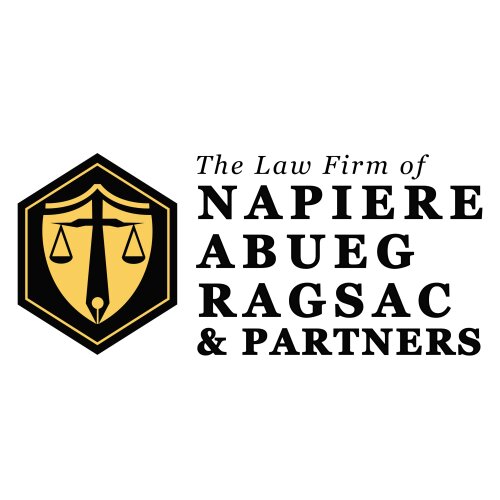Best Public-Private Partnerships (PPP) Lawyers in Quezon City
Share your needs with us, get contacted by law firms.
Free. Takes 2 min.
List of the best lawyers in Quezon City, Philippines
About Public-Private Partnerships (PPP) Law in Quezon City, Philippines
Public-Private Partnerships (PPP) are collaborative agreements between government entities and private sector companies designed to finance, build, and operate projects that serve the public interest. In Quezon City, PPPs are often utilized for developing infrastructure, transportation, healthcare facilities, schools, and other public services. The legal framework regulating PPPs in the Philippines is guided by national laws and local ordinances specific to cities like Quezon City. These regulations aim to ensure the transparency, efficiency, and mutual benefit of both public and private parties involved in such partnerships.
Why You May Need a Lawyer
Entering into a Public-Private Partnership is a complex process that involves legal, financial, and technical elements. Individuals and companies may require legal advice in situations such as:
- Drafting, reviewing, or negotiating PPP contracts and agreements
- Ensuring compliance with local and national laws and guidelines
- Understanding procurement processes and requirements
- Addressing disputes, grievances, or breaches of contract
- Navigating land acquisition, zoning, or permit issues
- Protecting intellectual property or proprietary technology involved in the partnership
- Adhering to tax obligations and fiscal incentives related to PPP projects
- Seeking government approvals or clearances
Legal expertise can safeguard the interests of both public and private sector participants, reduce risks, and streamline the PPP process from proposal to completion.
Local Laws Overview
While the Philippine BOT (Build-Operate-Transfer) Law or Republic Act No. 6957, as amended by Republic Act No. 7718, is the primary national legal framework governing PPPs in the Philippines, local government units (LGUs), such as Quezon City, also have their own PPP ordinances and guidelines. Key aspects relevant to PPPs in Quezon City include:
- Quezon City has established its own PPP Selection Committee to oversee project identification, approval, and monitoring
- Local ordinances require transparency and public bidding for most PPP projects unless exemptions are justified
- Clear stipulations must exist in partnership agreements on risk-sharing, revenue sharing, and performance guarantees
- There are processes for solicited and unsolicited proposals, with specific requirements for each type
- Environmental, social, and community impact assessments are frequently required
- Adherence to national policies on anti-corruption and fair competition is mandatory
Understanding both national and city-level regulations is crucial for successful PPP ventures in Quezon City.
Frequently Asked Questions
What is a Public-Private Partnership (PPP)?
A PPP is an arrangement where a government entity and a private company collaborate to finance, construct, and operate a project intended to serve public needs, like hospitals, roads, or schools.
Who can initiate a PPP project in Quezon City?
PPP projects may be initiated by government agencies or private sector proponents. Proposals can be solicited by the city or submitted unsolicited by private companies, following prescribed procedures.
Are there specific laws governing PPPs in Quezon City?
Yes, Quezon City has its own PPP ordinance, which complements national laws such as the BOT Law and related executive issuances.
What types of projects are best suited for PPPs?
Typical PPP projects include public infrastructure like transportation systems, water and sanitation, solid waste management, public markets, healthcare facilities, and educational buildings.
What is the difference between solicited and unsolicited proposals?
Solicited proposals are initiated by the government through formal invitations to bid, while unsolicited proposals are initiated by private proponents without prior request from the government but must meet additional requirements.
How does the procurement process work for PPPs in Quezon City?
PPP procurement generally involves public advertisement, prequalification of bidders, competitive bidding, negotiation, and contract award following city and national rules.
How are risks shared in a PPP arrangement?
Risks such as construction, financing, operation, and market risks are allocated between the government and private partner depending on contractual agreements and project specifics.
What benefits do private sector partners gain from participating in PPPs?
Private partners may benefit from project revenues, fiscal incentives, access to public land or resources, and long-term operational rights, subject to agreement terms.
Are there opportunities for foreign investors in PPP projects?
Yes, foreign companies may participate in PPPs, subject to limitations on ownership in certain sectors and compliance with Philippine laws on foreign investment.
Where can disputes be resolved in PPP projects?
Disputes are typically resolved through arbitration, mediation, or litigation, based on the contract’s dispute resolution clause and applicable Philippine law.
Additional Resources
If you want to learn more about PPPs or need support, you may contact or check resources from:
- Quezon City Government - Public-Private Partnership Office
- Public-Private Partnership Center of the Philippines
- Department of the Interior and Local Government (DILG)
- Department of Finance (DOF)
- National Economic and Development Authority (NEDA)
- Philippine Contractors Accreditation Board (PCAB)
- Legal and business chambers experienced in PPP matters
These institutions provide guidelines, assistance, and official documents to help both public agencies and private sector parties navigate PPP ventures.
Next Steps
If you are considering participating in a Public-Private Partnership in Quezon City, it is advisable to:
- Gather all relevant documents regarding your proposed project or partnership
- Identify legal questions or concerns specific to your situation
- Contact a qualified lawyer or law firm experienced in PPP and construction law in the Philippines
- Consult government PPP offices for procedural guidance and required documentation
- Stay updated on local ordinances, national laws, and regulatory changes that may affect your project
Legal counsel is invaluable in ensuring your PPP venture is compliant, sustainable, and advantageous. Taking proactive steps early can help address issues before they become obstacles, ensuring a smoother pathway to successful collaboration.
Lawzana helps you find the best lawyers and law firms in Quezon City through a curated and pre-screened list of qualified legal professionals. Our platform offers rankings and detailed profiles of attorneys and law firms, allowing you to compare based on practice areas, including Public-Private Partnerships (PPP), experience, and client feedback.
Each profile includes a description of the firm's areas of practice, client reviews, team members and partners, year of establishment, spoken languages, office locations, contact information, social media presence, and any published articles or resources. Most firms on our platform speak English and are experienced in both local and international legal matters.
Get a quote from top-rated law firms in Quezon City, Philippines — quickly, securely, and without unnecessary hassle.
Disclaimer:
The information provided on this page is for general informational purposes only and does not constitute legal advice. While we strive to ensure the accuracy and relevance of the content, legal information may change over time, and interpretations of the law can vary. You should always consult with a qualified legal professional for advice specific to your situation.
We disclaim all liability for actions taken or not taken based on the content of this page. If you believe any information is incorrect or outdated, please contact us, and we will review and update it where appropriate.
















